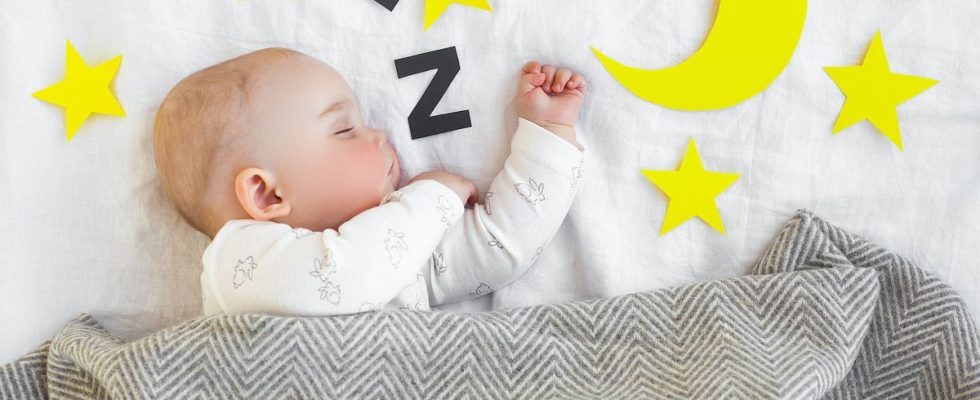Published on
Updated
Reading 3 mins.
Revealed in the press, Casper, a British baby suffers from Ondine syndrome, a rare pathology, which can stop the child’s breathing every time he sleeps, and lead to his death. What is this rare disease and what can be done about it? Dr. Jonathan Taieb, director of the Sleep Institute answers us.
What parent of a newborn has never checked their child’s breath as they pass by their crib? A reflex, linked to the fear of sudden infant death syndrome which will however diminish over the weeks or months. But for James and Stéphanie, a couple of young British parents, the anxiety is permanent and is about to last: according to information from the MirrorCasper, their infant suffers from a rare disease that no longer allows him to breathe when he dozes off.
“He wasn’t breathing like he should”
It is from the moment of maternity that the couple takes fright in the face of this newborn who is weakening: “The nurses noticed that Casper was a little cold during their routine checks. Suddenly one said, he doesn’t look well and we saw he wasn’t breathing as he should and he was flaccid” testifies the mother in the newspaper.
The child must be intubated, and examinations are scheduled. Doctors diagnose several illnesses: meningitis and neuroblastoma… which do not explain the fact that the infant is not breathing. Finally, the diagnosis is made: Casper suffers from a rare disease, the Ondine syndrome or congenital central hypoventilation syndrome, a condition that affects one in every 200,000 babies born.
Ondine syndrome, a rare disease
The disease results in a central dysfunction of the autonomic nervous control responsible for automatic breathing. Result: the body forgets to breathe at night, when the “autopilot takes over”. In 90% of cases, an anomaly of the gene PHOX-2B is in question.
“Symptoms of Sleeping Ondine’s disease can vary in intensity and frequency, but typically include episodes of apnea, chronic fatigue, excessive sleepiness during the day, and difficulty sleeping at night. People with this condition need constant monitoring while they sleep to avoid potentially serious complications.” explains Dr. Jonathan Taieb, director of the Medical Institute of Sleep in Paris.
Breathing support for life
Unfortunately for the parents and for the safety of little Casper, Ondine’s syndrome has no treatment. RespiFil, the Rare Respiratory Diseases department at Bicêtre Hospital, AP-HP, explains on its website: “Ventilatory assistance is vital and required at any age and for life: a mechanical ventilator is put in place day and night from birth, often by tracheostomy. In older children, it is possible to have recourse to non-invasive assistance: a mask to be worn during sleep and in situations where alertness is reduced”. The sector also speaks of a need for multidisciplinary care.
“Although there is no cure for Sleeping Ondine disease, available treatments aim to improve patients’ quality of life. Treatment options include medications to help regulate breathing during sleep, mechanical ventilation, or surgery. Research on this disease is still ongoing to find more effective solutions and improve the quality of life of patients.” completes Dr. Taïeb.
Casper’s parents organize
In the turmoil, Casper’s parents do not admit defeat to offer their third son a happy life despite everything. They thus created an association to talk about this rare syndrome: Keep Me Breathing. And on a daily basis, while waiting to develop a respiratory stimulator, bedtime is a little different in this English house: a nurse spends the whole night with the little boy after his mother has placed a mask on his face and a monitor. oxygen at his feet. Thanks to her, Casper has every chance of waking up the next day.
